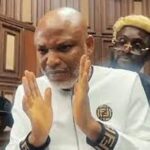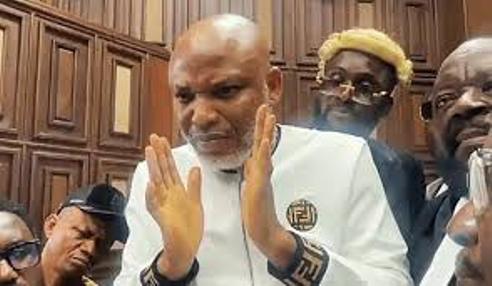
By Samuel Akpobome Orovwuje
LAGOS APRIL 6TH (NEWSRANGERS)-The issue of COVID -19 global pandemic has generated one the most emotive discussions in migration, international relations and diplomacy over the past five months – among both current affairs analysts, public health practitioners and national governments.
According to the World Health Organisation, (WHO), the total numbers of diagnosed cases has climbed to over one million persons. The noxious virus has spread to over 140 countries and territories and the global death toll has crossed 50,322, with more than 972,303 confirmed cases globally. While an update of the COVID-19 outbreak by the federal government, Nigeria Centre for Disease Control, NCDC, put the figures at week 15 as 224 confirmed cases in Nigeria.
At the heart of the discussions, is the apprehension of its impact on humanity , the socio- economic cost, and the practical sticky situation that Nigerians will face- before, during, after the containment of the dreaded virus, and the dire lack of credible and evidence- based data to help understand, how many Nigerians are really afflicted with the disease apart from the figures being brandish in the traditional and new media, and to what extent humanitarian relief operations are able to deliver on the vague promises made by sub national governments and indistinct Abuja!
Indeed, this dialogue is to foster an agenda for public health advocacy and simultaneously inform policy making for timely and appropriate relief; grounded in a clearly defined, scientifically sound reasoning, focusing on discussions on public health challenges, substantive matters of public interest, and reducing the scope of political manipulation, that has characterised governance and public policy, in the last 20 years of our nascent democracy, and charting a practical guide for decision makers in sustainable human development, and targeting social protection to reducing national chronic poverty and their interconnections with inequality, human security and ethnicity.
The new climate of uncertainty amongst political leaders and global stakeholders, the weakness or complete failure of the Nigeria state structures and the vulnerability of the poor in the context of emergency preparedness and the challenge of the will and capacity of the country has become suspect. Sadly, the government is under greater scrutiny from the citizens, the media, and victims and from the public. The real danger and the public expectations create panic and an environment in which the national and sub- national government are under severe pressure than ever to response faster and more effectively. However, the government faces difficulties in anticipating and responding adequately to this emerging global health crises-due in part to lack of tangible investments in basic health systems and the neglect of basic emergency preparedness template domiciled in the Ministry of Humanitarian Affairs and the National Emergency Management Agency, (NEMA).
Dreadfully, given the dimensions and dynamics of humanitarian threats, the difficulties will be daunting in the days ahead. In this regards, going forward with the lessons learnt so far, the government and non – state actors must enhance capacity to anticipate potential threats and at same time need to be sufficiently proactive to respond in ways that will address the threats. The government must be willing to engage and learn from other stakeholders, including the corporate sector, particularly the newly created Ministry of Humanitarian Affairs, to strengthen overall response, prevention and emergencies preparedness capacities.
Manifestly, it is not clear of what interventions must be implemented to mitigate the adverse public health consequences and what standards must we as people strive to achieve, similarly the range of interventions at the disposal of citizens is grossly inadequate. Despite the global dimension of the disease, there is an apparent failure to deliver on Humanitarian relief efforts, particularly in Europe, where the scourge is unprecedented. For the avoidance of doubt, what constitutes a humanitarian crisis or emergence particularly from COVID – 19? According to James Darcy: Humanitarian crisis as any situation involving an exceptional and widespread threat to life, health or subsistence that exceeds the coping capacity of individuals and the community.
Nigeria’s main concern at this moment in my view is the nexus to multidimensional poverty and the existential links to national security, shelter, food, water, sanitation and indeed the failed national identity management system as well as a corrupt public sector officials not acting in line with international best practices in emergency and crises management. Therefore, the ravaging pandemic should be a call to action in building local and national capacities to ensure coping mechanisms to sustain the achievements made by the Lagos state government and respond to future emergencies. The proposal to leapfrog social development is massive investment in robust health infrastructure, communities must be engaged in risk management measures beyond public information interface of announcements and press releases that create more panic than the real threat, and public information managers must inspire compassion and openness in government – to – citizen’s communication.
Pointedly, accesses to basic health services are nonexistent during emergencies and it should be of note that adequate health services are vital to preventing excessive death rates. Furthermore, more efforts must be made to address the requirement for sustainable human and financial resources in the health sector. In addition, hunger has emerged as a major issue at the top of the national conversations and dialogue with high food prices- aggressively rising in geometric proportions. The recorded high food prices are placing food out of reach for the vulnerable and majority of Nigerians most especially for those living on less US$1 a day.
Correspondingly, the poorest households are already spending a larger part of their income on food. Nigerians most affected are small farmers, urban poor, rural landless, and some of the notorious pastoralists! These challenges beyond the current pandemic are massive investment on social and human capital, which is one of the most critical success factors and key performance benchmarks to ensuring sustainable peace and security. Consequently, as people we must ensure we stay ahead of the prevalent chronic hunger crises with early warning systems dotting their entire geo- political landscape.
The Nigerian government can draw lessons from Ethiopia, which has used food and cash interventions to address hunger at its earliest symptom. The Buhari led government has great moment with the future and must urgently embrace the new developmental state economic models, being the countries that have vision, leadership and capacity required to transform societies. Essentially, the country has to move away from the 1960s and 1970s central planning models to deliver on the public good. The government must regulate markets; negotiate with foreign investors in manner that is favourable to Nigerians, where revenue goes towards furthering human development and improving lives. The critical tripod for this government in the wake of this pandemic should be clear vision, authentic leadership and above all, and perhaps the most crucial is capacity.
The key challenge is governance and capacity development of the public service, which is strap to the developmental state paradigm shift, to build capacity of governments at various levels to public policy initiatives, including state regulators, so that Nigeria is able to effectively deliver on essential regulations and public service delivery to its citizens on emergencies and peacetime.
Lastly, while the COVID- 19 pandemic rant and rave, the government will, we hope it , serve as a bitter bill and catalyst for safeguarding lives, livelihoods and basic human rights is at the centre of governance, which means the promotion of pro-people policy options to enable Nigerians to be protected and indeed protect themselves from a broad range of existential threats to their lives and livelihoods , ranging from threats of kidnapping, banditry, boko haram, hunger , political corruption and threats to economic security.
Samuel Orovwuje is Founder, Humanitarian Care for Displaced Persons, Lagos. orovwuje@yahoo.com, 08034745325










